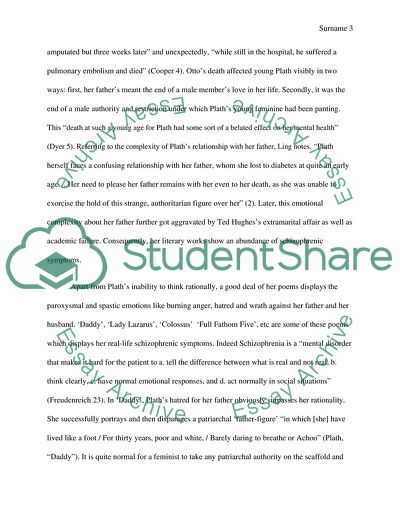Cite this document
(Sylvia Plaths Mental Illness Revealed in her Poems Assignment - 1, n.d.)
Sylvia Plaths Mental Illness Revealed in her Poems Assignment - 1. https://studentshare.org/psychology/1787058-the-existence-of-sylvia-plaths-mental-illness
Sylvia Plaths Mental Illness Revealed in her Poems Assignment - 1. https://studentshare.org/psychology/1787058-the-existence-of-sylvia-plaths-mental-illness
(Sylvia Plaths Mental Illness Revealed in Her Poems Assignment - 1)
Sylvia Plaths Mental Illness Revealed in Her Poems Assignment - 1. https://studentshare.org/psychology/1787058-the-existence-of-sylvia-plaths-mental-illness.
Sylvia Plaths Mental Illness Revealed in Her Poems Assignment - 1. https://studentshare.org/psychology/1787058-the-existence-of-sylvia-plaths-mental-illness.
“Sylvia Plaths Mental Illness Revealed in Her Poems Assignment - 1”. https://studentshare.org/psychology/1787058-the-existence-of-sylvia-plaths-mental-illness.


